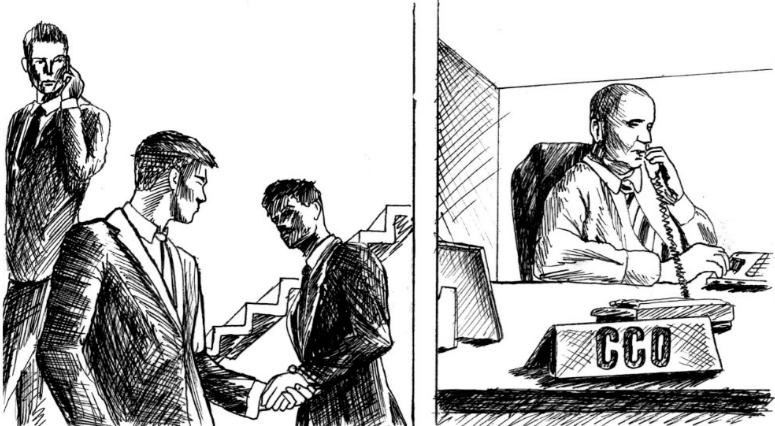Implement What You Know with Confidence
Discover action-based tools that provide simple steps for program improvement or robust plans for new ways of doing business.
Your ethics and compliance program is an ecosystem of moving parts. New laws and regulations, new lines of business, new geographies, mergers and acquisitions become part of a growing enterprise that your compliance ecosystem must support.
Effective compliance programs are able to deftly navigate these complexities because they have built strong foundations that were developed with the nature of the compliance industry in mind.
This section will give you the expert advice and programmatic best practices to ensure the first steps you take to develop your program are in the right direction. Or if your program is more mature, these resources and insights will give you the necessary guidance to course correct and improve your program’s foundation at whichever stage it is in.
Chapter 12 of The Worst-Case Scenario Survival Guide for Compliance Professionals
Conflicts of interest can be expensive legally and culturally. Knowing the early warning signs can aid in preventing future corruption as well as reducing the perception of conflicts. Learn how you can best survive a conflict of interest.
Chapter 12 of The Worst-Case Scenario Survival Guide for Compliance Professionals
Conflicts of interest can be expensive legally and culturally. Knowing the early warning signs can aid in preventing future corruption as well as reducing the perception of conflicts. Learn how you can best survive a conflict of interest.
Two new Directors were recently elected to your board and, after introductions, you discover one of the new directors previously ran the local branch of a national bank. He casually mentions a recent personal loan he made to your CEO and board chair before being nominated to the board. From the sound of it, the banker had been falsely advised that the CEO’s “new start-up fund” was a company sponsored initiative.
Let’s evaluate what you can do immediately to survive.

1. Determine the Conflict
Your conflict of interest policy specifies that there can be no use of company property for personal gain. Further, if any employee engages in an outside business endeavor, it must be approved by an appropriate level corporate committee. For officers, such a conflict must be approved by the board of directors’ compliance committee. As the CCO, you have two concerns: (1) is the CEO selling board seats for personal loans and (2) is the CEO’s new start-up fund a conflict of interest?
Your conflict of interest applies to everyone, from the boardroom to the shop floor.
2. Define Parameters
You recognize that a conflict of interest may arise from an employee’s business or personal relationship with a customer, supplier, competitor, business partner, or other employee, if that relationship impairs the employee’s objective business judgment. A conflict of interest may also arise when an employee receives a personal benefit as a result of their position within the company. This includes any loan to, or guarantee of any obligation of, the employee and/or the employee’s friend or family member. These problems are only compounded when it involves an officer who is the CEO and board chair.
Conflicts of interest are real and present dangers.
3. Investigate & Review the Situation
Even if you do not believe there is a conflict of interest, as this involves the CEO and board chair, is there a potential conflict of interest? How about the perception of a conflict of interest? Furthermore, what discipline, if any, should you deliver to the CEO? If the CEO violated the conflict of interest policy, should that person receive a warning letter, suspension or termination? If you do not discipline the CEO what will be the effect going forward on the rest of the employees? Will they take the conflict of interest policy seriously or, indeed, any internal company regulation? What would it say about your company’s commitment to ethics and compliance? As you are a public company, is this a reportable event?
Andre Agassi was right, “perception is reality.”
Comments
Write your reply...